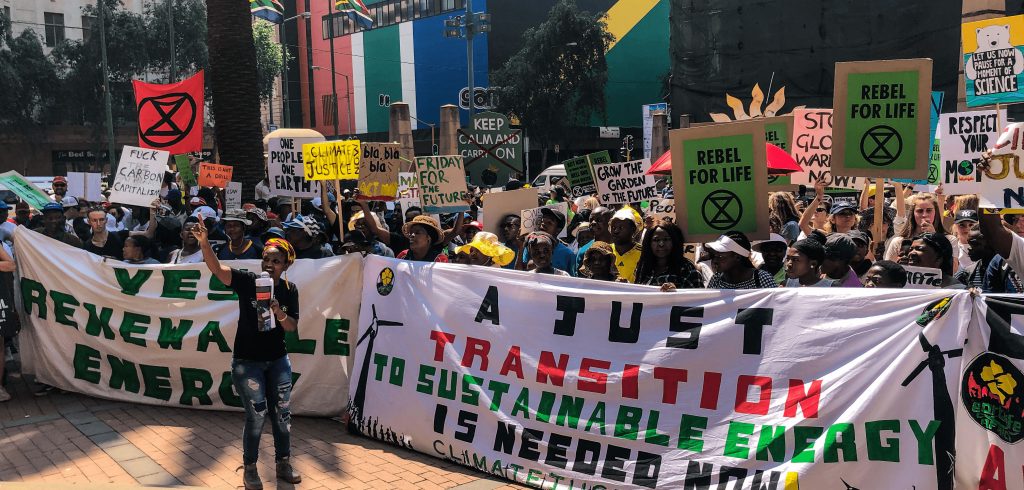Amnesty International South Africa is calling on the South African government to commit to more ambitious climate action to reduce greenhouse gas emissions in line with keeping the temperature rise as low as possible and no higher than 1.5 °C, and in a manner that advances human rights.
As world leaders, prominent figures and parties to the 25th Conference of the United National Framework Convention on Climate Change (COP25) gather in Madrid from today to 13 December, Amnesty International is calling on them to take the bold cooperative measures that are needed to make meaningful progress in protecting human rights in the face of the climate crisis.
Amongst those who have travelled to COP25 is Greta Thunberg, the sixteen-year-old climate activist who, in September of this year, condemned the lack of action by world leaders to act on the climate crisis. Greta spoke on behalf of thousands of young people around the world who are rising up against climate change and cited more than 30 years of scientific evidence that points to global warming. She left world leaders with a warning, explaining that future generations are watching them and that they will not get away with doing nothing.
COP25 provides a powerful opportunity for South Africa to act as a changemaker on the continent by taking unflinching action for climate justice. It is important that our leaders do so since South Africa is already seeing the devastating impacts that climate change is having – and will continue to have – on our country.
The Eastern Cape is drought-stricken with empty dams and unprecedented water shortages negatively affecting maize production and pushing up food prices. Cape Town just narrowly survived the possibility of “day zero”. Had the two-year long drought not ended, Cape Town could have been the first major city in the modern era to run out of water.
According to World Weather Attribution, the likelihood of this type of drought occurring again has tripled due to climate change. Furthermore, the government of South Africa has stated that for the period of 2080-2099, temperature increases of more than 4 °C are likely over the entire South African interior, with increases of more than 6 °C plausible over large parts of the western, central and northern parts.
Such rises will be associated with drastic increases in the number of heatwave days and very hot days, with potentially devastating impacts on agriculture, water security, biodiversity and human health.
Furthermore, the climate crisis will exacerbate existing inequalities as those who are already marginalised will bear the brunt of its impact. Its effects are likely to be far more pronounced in developing nations rather than developed; in different ethnicities and classes; for women and girls rather than men; for younger generations and indigenous peoples. This is an emergency, and inaction is not an option.
Despite the long-standing demands for climate justice from communities at the frontline of the climate crisis and recent mass mobilisations from children and youth globally, responses until now have not been to the scale of the challenge.
Amnesty International South Africa is calling on the South African government to commit to more ambitious climate action to reduce greenhouse gas emissions in line with keeping the temperature rise as low as possible and no higher than 1.5 °C, and in a manner that advances human rights.
They must ensure that a robust international mechanism is in place to provide support to people whose human rights are affected by climate change, and we urge them to agree on rules for states to cooperate on emissions cutbacks that will allow for sufficient reductions and ensure respect for human rights.
And finally, to improve plans to ensure that international climate policies mainstream gender equality and address intersecting forms of discrimination.
The failure of governments and corporates to act on climate change in the face of overwhelming scientific evidence may well be the biggest inter-generational human rights failure in history.
It is clear that the climate crisis is as much a human rights issue as an environmental one. Afterall, there is no humanity to speak of on a dead planet.
It is imperative therefore, that the South African government take all necessary steps to tackle the climate crisis and adapt to the foreseeable and unavoidable effects of this catastrophe. Let COP25 be the place to do this.
Jennifer Wells is the Justice and Accountability Consultant at Amnesty International South Africa where she works on the climate crisis, South Africa’s foreign policy and high-level human rights advocacy.


